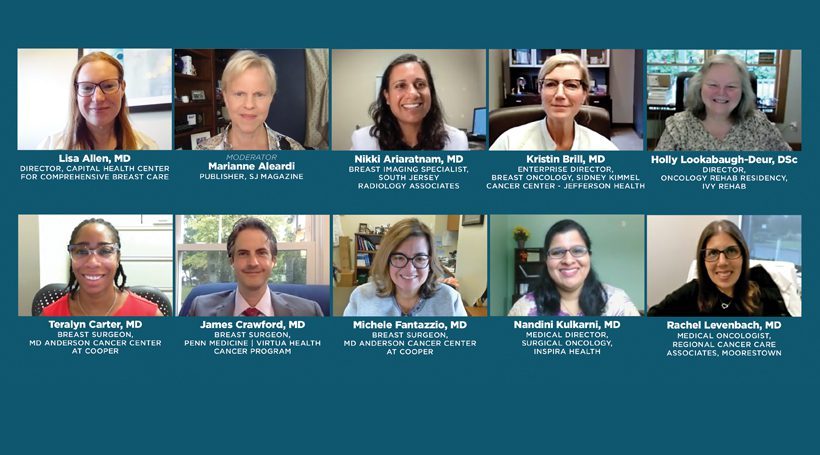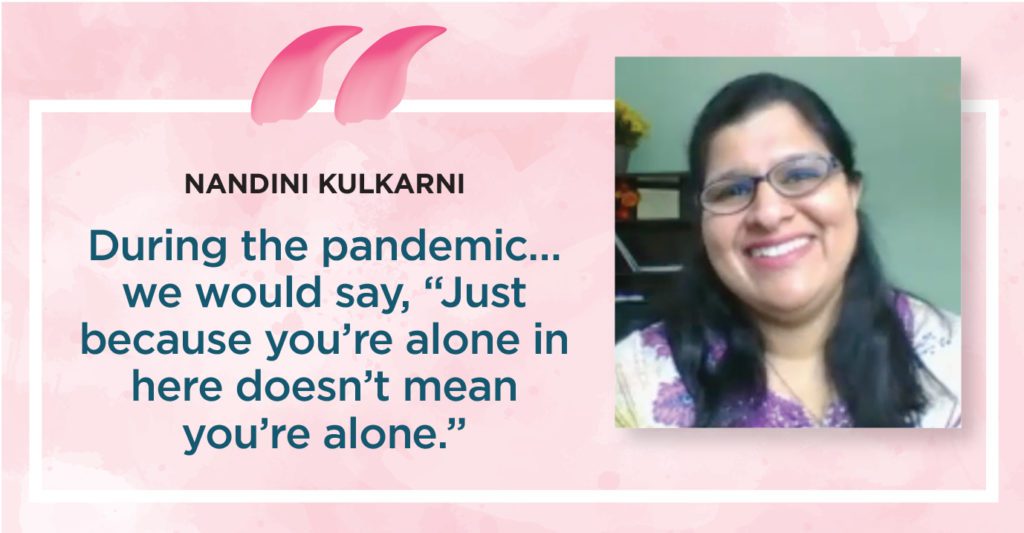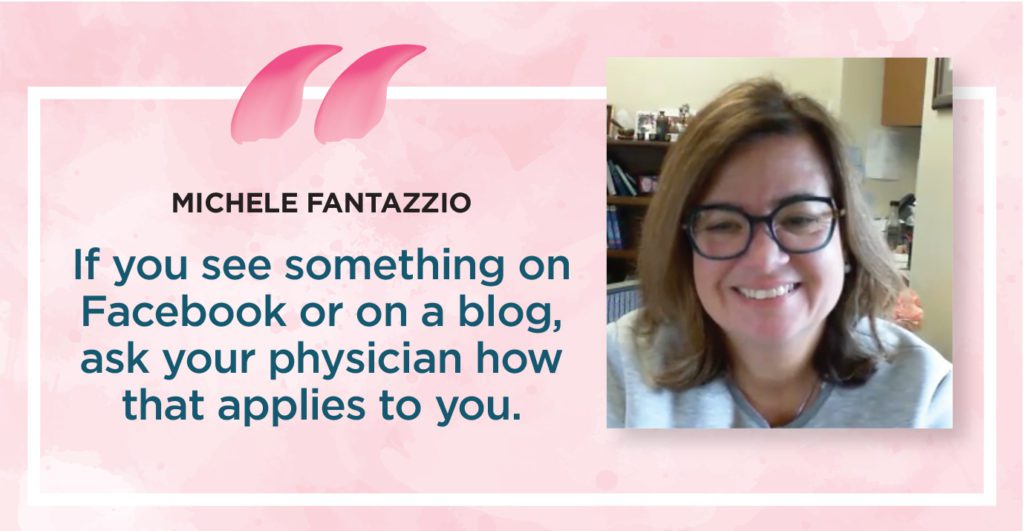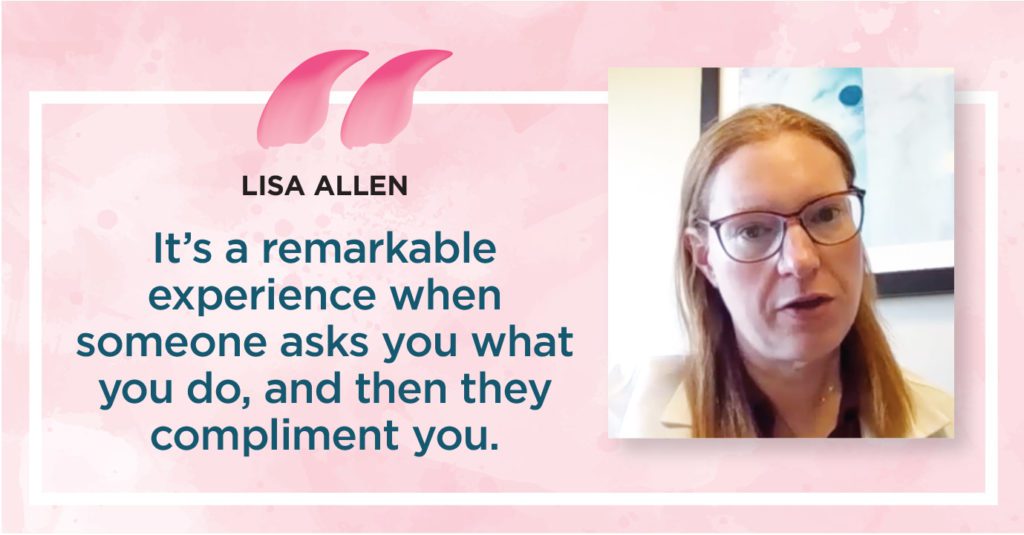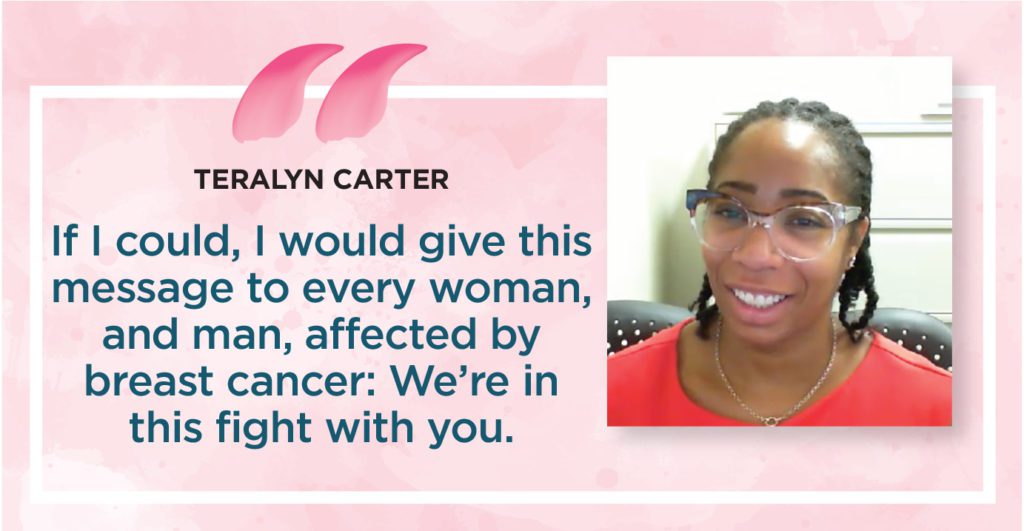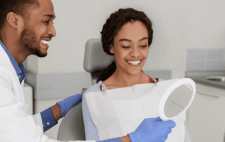To commemorate breast cancer awareness month, we gathered South Jersey’s leading breast cancer specialists to talk about the latest cancer advancements, cancer info on the web and when the diagnosis impacts patients the most (it’s not when you think).
Participants:
Moderator Marianne Aleardi, Publisher, SJ Magazine
Lisa Allen, MD Director, Capital Health Center for Comprehensive Breast Care
Nikki Ariaratnam, MD, Breast Imaging Specialist, South Jersey Radiology Associates
Kristin Brill, MD, Enterprise Director, Breast ONCOLOGY, Sidney Kimmel Cancer Center – Jefferson Health
Teralyn Carter, MD, Breast Surgeon, MD Anderson Cancer Center at Cooper
James Crawford, MD, Breast Surgeon, Penn Medicine | Virtua Health Cancer Program
Michele Fantazzio, MD, Breast Surgeon, MD Anderson Cancer Center at Cooper
Nandini Kulkarni, MD, Medical Director, Surgical Oncology, Inspira Health
Holly Lookabaugh-Deur, DSc, Director, Oncology Rehab Residency, Ivy Rehab
Rachel Levenbach, MD, Medical Oncologist, Regional Cancer Care Associates, Moorestown
ON CANCER RESEARCH & ADVANCES
Olivia Newton-John was first diagnosed in 1992. She died in 2022. Her cancer came back, but it came back some 20 years later. That’s a testament to how treatment has advanced. People used to die from their original breast cancer and now you see patients with another breast cancer in the opposite breast or in the same breast. But they live that long – that’s reassuring.
Michele Fantazzio
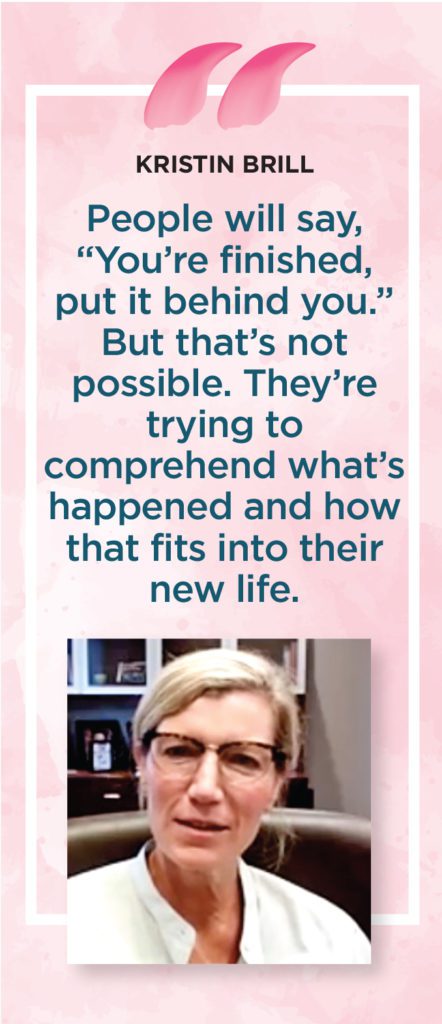 A lot has changed, even in the last 5 years, as far as new drugs for breast cancer treatments. It’s very encouraging. There’s a lot of new therapeutics, and there are a lot of clinical trials for patients to be involved in that could help their outcomes and the outcomes of patients behind them.
A lot has changed, even in the last 5 years, as far as new drugs for breast cancer treatments. It’s very encouraging. There’s a lot of new therapeutics, and there are a lot of clinical trials for patients to be involved in that could help their outcomes and the outcomes of patients behind them.
Teralyn Carter
Back in the mid ’90s, it didn’t matter how small your cancer was, we would take out all the lymph nodes from underneath the arm – that’s called an axillary dissection. About 25% of women were getting permanent swelling of their arm from that, which is called lymphedema. But we’re now realizing that not everybody needs an axillary dissection. That’s a really important discovery – surgery is definitely changing for the better.
Lisa Allen
There’s been significant advances, honestly, even within the last couple of months. The treatment we use for triple negative breast cancer changed within the last year. So it’s changing a lot and for the better.
Rachel Levenbach
Even in our community hospital, we are focused on cancer research. We have dedicated teams, and it’s amazing to be part of something bigger, to be able to enroll our patients into some of these trials that otherwise would be available only at tertiary care institutions.
Nandini Kulkarni
There is a growing number of people in the rehabilitation field who are specializing in optimizing quality of life following cancer treatment, which is incredibly important. There’s a growing awareness that it’s not just about the treatment, it’s about the full recovery. We’re finding that if we can be involved right at the beginning of the journey and be part of the surveillance of that individual, that it’s almost as important to the quality of life as the medical treatment.
Holly Lookabaugh-Deur
MORTALITY & BREAST CANCER
Breast cancer in general is a very survivable diagnosis. But some types of breast cancer have late recurrences, meaning that even after you’ve not had cancer for 10, 15, even 20 years, it can come back. All you need is one single cell that’s not currently undergoing treatment to escape into your body. There has been a false perception that once you’re past the initial 2 to 5 years, you’re in the clear, but that’s not always true. It depends on the cancer.
Lisa Allen
Mortality rates really haven’t changed that much. The survival rate for breast cancer is generally very good. The type of tumor and its stage are very important – that can cause dramatic differences in survival.
Kristin Brill
PATIENTS & THE WEB
Patients have easy access to a lot of information, and it can be very tricky. There is a lot of misinformation out there, and it’s our role to educate them on research. But you also have to be respectful of patients’ viewpoints and understand where they’re coming from. Part of our role is to educate them on something they found that may or may not apply to their care.
James Crawford
This is a very vulnerable population. They are targets on social media. One of the most important things I do with my patients is ask them, “What do you know? What do you believe?” and I try to keep myself informed about everything that’s out there. You don’t have to argue with a patient and dispel anything they’ve seen, but sometimes you have to clarify.
Holly Lookabaugh-Deur
I’d like to make it clear that with any vaccination – whether it be a flu shot or a Covid vaccination – patients may, almost immediately or within a week, start to develop some swollen lymph nodes. That’s the immune system reacting to the vaccination. That caused a lot of concern for patients, and there is a lot of misinformation on social media. We’re trying not to feed into scare tactics, we’re trying to make sure everyone gets the care they need.
Nikki Ariaratnam
If you see something on Facebook or on a blog, ask your physician how that applies to you. Because you can’t just put everything in the same basket and assume that because this person did this, then you should do the same thing.
Michele Fantazzio
A lot of patients come in very informed, and that’s great. But there are also patients who come in, and they’re just kind of lost. It’s really overwhelming. It’s important we meet our patients where they are, to make sure they’re getting the right information so they can make good decisions, as opposed to them relying on what they’ve read on the internet. It’s important to let them know these are the facts, this is the data we have.
Teralyn Carter
Someone may come in and ask if it is ok to have green tea when they’re getting treatments. But if someone says they’re going to take green tea in lieu of their treatments, that’s when you need to say, “This is something you can do, but don’t exclude your standard treatments.” It’s important we connect with our patient at that very basic level and say, “We are walking with you. We understand your beliefs, your faith, and we will tailor our treatments around that.”
Nandini Kulkarni
GIVING THE DIAGNOSIS
I always tell patients they’re probably going to remember about 2% of the things I say today, so I’m going to reiterate this every time they come to see me. It’s important for a patient to come with someone because it’s overwhelming in the beginning. I’m always willing to write things down or give them handouts. I tell them they don’t have to remember everything and they can call with questions. But when I see you, we’re going to talk about it all again.
Rachel Levenbach
If I have the patient come to the office and I tell them they have breast cancer, and then I go into an hour-long discussion about staging and treatment, they won’t hear a single word I say. So I let them know over the phone, and then a day or 2 later, I have them come in to have that conversation. I recommend they bring a support person so they have a second set of ears. I write everything down very clearly for them. I spend a lot of time making sure they understand what we’re discussing.
Lisa Allen
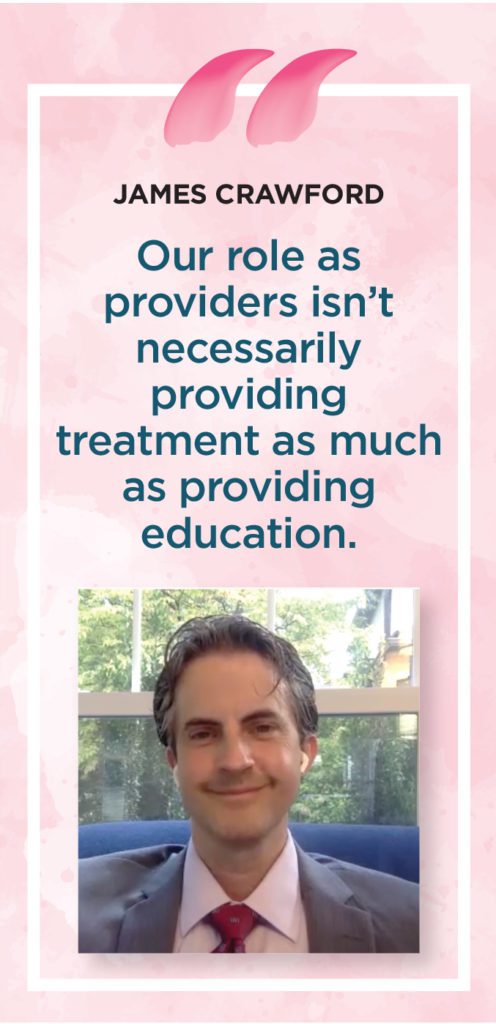 During the pandemic, bringing someone with you was not an option, so we would do a video conference with the family member who was sitting out in the car. We would say, “Just because you’re alone in here doesn’t mean you’re alone.” After the pandemic, I find myself offering that option even more. If you have someone in Puerto Rico you want to listen in, if that makes you feel better and makes you feel supported, go for it.
During the pandemic, bringing someone with you was not an option, so we would do a video conference with the family member who was sitting out in the car. We would say, “Just because you’re alone in here doesn’t mean you’re alone.” After the pandemic, I find myself offering that option even more. If you have someone in Puerto Rico you want to listen in, if that makes you feel better and makes you feel supported, go for it.
Nandini Kulkarni
I often meet the patient at the start of their journey, when they come in for a biopsy. I chat with them – find out if they have young children, if they’ve had a loved one who has been ill, is this the first time they’re touching the medical system as a patient. So by the time I have the phone call giving them news about some kind of actionable finding, I know if they’re going to be totally blindsided or they’ve seen this before. Having those early conversations gives me a better sense of how I can connect with them to make sure getting to the next level is as seamless a process as possible.
Nikki Ariaratnam
WHEN THE TREATMENT IS OVER
We often don’t see the emotional or psychological impact until after treatment. We look out for anxiety, depression or periods of blueness when a patient finishes chemotherapy or surgery, and they’re seeing their doctors less often. That’s the time when they begin to process what’s happened. People will say to them, “You’re finished. This is great, you can put it behind you.” But that’s not possible. They’re trying to comprehend what’s happened and how that fits into their new life.
Kristin Brill
In the beginning, it’s overwhelming. There’s no time to breathe. It’s go, go, go, go. Then when it all finishes and we see them for a 3-month follow-up visit, very often a patient will say, “I’m very sad. I’m very depressed. What just happened?” Many times, patients are trying to stay strong, but this is a time when they should ask for help, because there is a lot of support available for them.
Rachel Levenbach
ADVICE FOR FAMILY MEMBERS
Be a source of stability for the patient, but also a source of stability for the rest of the family. If the patient is a mother of children, help keep the children’s routines as unperturbed as possible. That can alleviate stress on the patient, so the patient has the space to take care of their own health.
Nikki Ariaratnam
You don’t have to be a big hero. There are simple things you can do to help, like looking at how the bedroom is arranged to get in and out of bed or how the kitchen is arranged. Little things can make life easier.
Holly Lookabaugh-Deur
It can be very tempting to try to solve problems for the person. But recognize that’s not your role. You’re there for them.
James Crawford
The patient is going through a lot. They’ll have good days and bad days. The best thing is to be a support system. Ask, “What can I do to help?” Provide support however they may need it.
Rachel Levenbach
A PATIENT THEY’LL ALWAYS REMEMBER
I recently had a patient who had felt something, but she was on the younger side and her primary care doctor told her it was nothing. So her breast cancer was a little bit more advanced than if we had met her at the beginning, but we saw her come out on the other side. She was so confident that she was getting this taken care of. She is an example of resilience. She left an impression that sometimes you have to fight for your own health.
Teralyn Carter
Early in my practice, I had a patient in her mid-30s who had a high-grade cancer, received chemotherapy and had a great response to surgery. We ended up becoming very good friends. She went on to develop metastatic disease first in the chest and then brain. Something eye-opening happened during our efforts to treat her. She had very little left and her husband finally said to us, “What are you doing?” It made me realize that part of our job is being able to give people the opportunity and respect to do what they need at the end of life and not just prolong it with no consideration for quality of life.
Kristin Brill
I had a patient with advanced disease who had tenacity and grit. The way she approached life and enjoyed life was incredibly inspiring. We were able to provide her with another 16 or so months of life, and she just lived every moment of it. When she eventually passed, I attended her funeral to give my condolences and say goodbye. Now I look forward to the day I get to see her again.
James Crawford
I had a patient who was born the same year I was and had children exactly the same ages as I did. She went through treatment and very successfully came out at the other end. Then 3 years later, unfortunately, she developed metastatic disease. We’ve been in this fight together. It’s been challenging to emotionally deal with the fact that every time she comes in, it’s almost like I’m looking at a mirror image of myself. There’s a feeling that this could have very well been me.
Nandini Kulkarni
There are patients who haven’t survived, who I really wanted to help. I was on their team wanting everything to be successful, but sometimes, the cancer is just too aggressive. We can’t beat it. Those are the people who really, really stay with me.
Lisa Allen
WHAT THEY LOVE ABOUT THEIR JOBS
When I tell people what I do, they kind of go, “Huh?” I’ve been a physical therapist for 42 years and truly this is the most impactful I have ever felt in treating someone. I often have patients at the very end say, “I finally feel like I am my best self.” I learn from them as much as they learn from me.
Holly Lookabaugh-Deur
You can’t help but be inspired by the women who experience this with grace and strength. They motivate us on a daily basis. So this is the best job.
Michele Fantazzio


